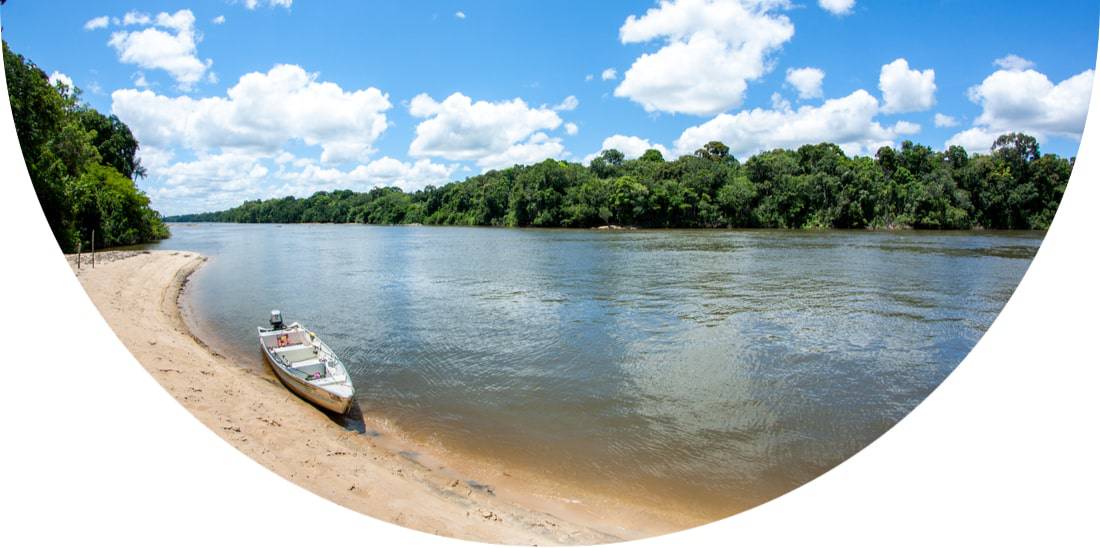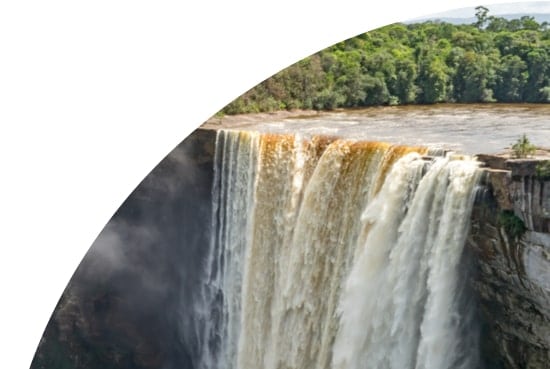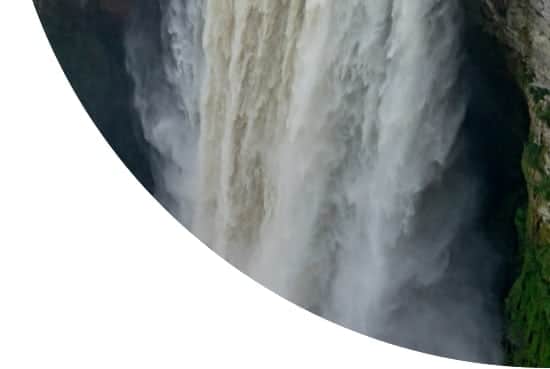West Nile virus (WNV) is spread by mosquitoes in many countries. There are usually no symptoms, although some people develop mild flu-like symptoms, nausea and skin rash. The virus is not contagious and should get better without any treatment.


Travel Vaccinations for Guyana
Recommended Vaccines for Guyana
The level of protection needed depends on your medical history and travel itinerary. Book now to get a personalised recommendation from our specialist travel nurses. The consultation costs £20 plus any vaccines you decide to take.
Vaccines Advised To Some Guyana Visitors
Flexible appointments with no upfront payment
Book Now
Destination Information for Guyana
The small country of Guyana, on the North Atlantic coast of South America, is an English-speaking former British colony. It was originally settled by the Dutch, but came into British possession by 1815, achieving its independence from the UK in 1966. This tropical country is mainly comprised of rainforest, with a mountainous area on the Northeast, around Kamarang.
The capital is Georgetown, on the Guyanese Coastal Plain, with its British colonial architecture and timber-built Anglican Cathedral. Here you can visit the National Museum and purchase locally-made crafts and souvenirs at the market.
Eco-tourism is emerging as a popular industry in Guyana, with visitors heading to the country to climb the mountains, spend time on the beaches and see the spectacular scenery and wildlife of this beautiful country. The Kaieteur Falls is a breathtaking waterfall five times the height of Niagara, which can be visited as a daytrip from Georgetown. Shell Beach, on the Northwest, is a fabulous place to go to see turtles laying in a protected conservation area.
Guyana is a great choice for travellers who want to avoid typical tourist hotspots and to explore a stunning South American country with a rich variety of attractions. From golden beaches and lush rainforests to wild waterfalls and rare mammal species, this is a natural wonderland that is well worth the effort to visit.
Infections and Outbreaks frequently change from country to country and by attending our clinics you will be given the most up to date clinical and safety advice from our team of specialists. Our advice to you often includes aspects such as:
- Food and water hygiene
- Insect and animal bite avoidances
- Personal safety
- Sexually transmitted infections
- Sun protection
- Altitude sickness
Chikungunya in the Carribean/Americas
The outbreak of chikungunya virus infection in various Caribbean islands and the Americas is ongoing; WHO/PAHO has published further epidemiological data on countries reporting autochthonous transmission.
Non-Latin Caribbean:
- Anguilla, 71 suspected cases, 55 confirmed.
- Antigua and Barbuda, 1,442 suspected cases, 18 confirmed.
- Aruba, 474 suspected cases, 743 confirmed.
- Bahamas, 99 confirmed cases.
- Barbados, 1,897 suspected cases, 122 confirmed.
- Cayman Islands, 229 suspected cases, 44 confirmed.
- Curacao, 1,838 suspected cases, 835 confirmed. Unchanged since Jan 9 report.
- Dominica, 3,598 suspected cases, 173 confirmed.
- Grenada, 3,070 suspected cases, 26 confirmed. Unchanged since Jan 9 report.
- Guyana, 5,310 suspected cases, 105 confirmed.
- Jamaica, 1,669 suspected cases, 87 confirmed.
- Montserrat, 118 suspected cases, 14 confirmed.
- St Kitts and Nevis, 627 suspected cases, 28 confirmed.
- St Lucia, 645 suspected cases, 238 confirmed.
- Sint Maarten, 470 confirmed cases. Unchanged since Jan 9 report.
- St Vincent and the Grenadines, 1,223 suspected cases, 175 confirmed.
- Suriname, 1,210 confirmed cases. Unchanged since Jan 9 report.
- Trinidad and Tobago, 313 confirmed cases.
- Turks and Caicos, 19 confirmed cases. Unchanged since Jan 9 report.
- UK Virgin Islands, 347 suspected cases, 47 confirmed cases. Unchanged since Jan 9 report.
- US Virgin Islands, 1,541 suspected cases, 376 confirmed.
Malaria and regions within country:
There is a high risk of P.Falciparum and P.Vivax malaria throughout the country. Coastal areas are the exception. These areas, including the city of Georgetown, have a low to no risk of malaria.
Additional Health Risks Information for Guyana
Guyana is a beautiful country, but travelling here also has its risks. Serious crime is known to be an issue, particularly in the capital, Georgetown, and it is not safe to travel after dark. Avoid travelling alone if you can, and keep money, valuables and your passport out of sight. The road conditions are difficult in places, with the surfaces being poorly maintained, damaged due to heavy rainfall and the standard of vehicles and driving generally low. Use a reputable taxi firm if you are travelling by road. The rainy season in Guyana is from May to August and from November to January. Flooding may occur during these times.
Medical facilities in Guyana are limited, with a lack of facilities and trained medical staff. In an emergency you may be required to be evacuated. Ensure you have adequate travel insurance in place that provides for this possibility. Guyana is affected by the Zika virus. Women who are pregnant or planning to become pregnant should not visit the country. All other visitors should take steps to avoid being bitten by mosquitos. As with travel to all countries, you should be aware of your personal and food hygiene, taking care that everything you eat has been prepared properly in order to avoid food poisoning. The tap water in Guyana is not safe to drink.



